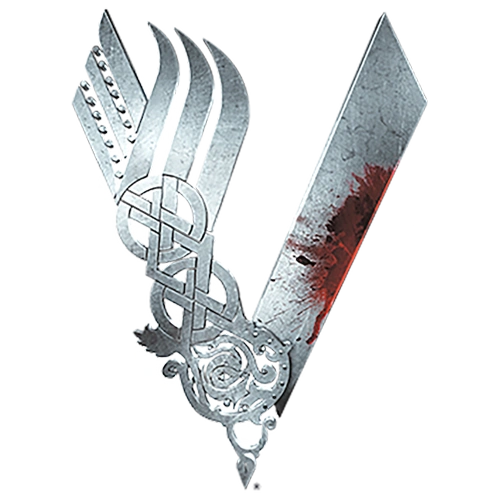An epithet is a title or nickname given to a person whilst living or posthumously. It denotes a major aspect of their personality, achievements, skills or attributes.
In Norse culture, and in other Germanics such as the Anglo-Saxons, it was widespread to highlight noted people, or noted characteristics.
Operation
All Norsemen are born with the name of their father added as their surname. For instance:
- Ragnar Sigurdsson
- Rollo Sigurdsson
- Bjorn Ragnarsson
- Ubbe Ragnarsson
- Hvitserk Ragnarsson
- Sigurd Ragnarsson
- Ivar Ragnarssson
- Leif Eriksson
- Erlander Horiksson
- Earl Haraldsson (whilst we don't know the Earl's personal name, his father's name was Harald).
However, in the event of a notable occurrence or personal instance, the use of an epithet overrides the familial designation.
After fighting bravely in Wessex, Ragnar gave Bjorn the title "Ironside", denoting fighting skills as hard as iron.
Ragnar himself was called Lothbrok, meaning hairy breeches. According to legend, he defeated a mighty serpent that was terrorising his village by use of trousers made of animal hides. The serpent was not able to bite him whilst he wore them.
Bjorn's brother, Ivar, was named the Boneless by Ragnar due to his disability. Sigurd was named Snake in the Eye by his mother, Aslaug, due to a congential iris shape, resembling a snake.
King Harald was called Finehair, possibly due to having fair hair, whilst the name of this brother Halfdan (the Black) is unknown. Their associate, Egil the Bastard, could be due to him being either illegitimately born or estranged by his father.
Real-life use
Many Germanic figures had epithets.
Erik the Red was a Norse warrior who discovered Iceland.
Thorgils Skarthi was a Norse warrior who is said to have founded the Yorkshire town of Scarborough.
Gorm the Old, Sweyn Forkbeard, Harald Bluetooth, Harold Harefoot, and Harald Hardrada, were all instances of epithets by Norse kings of the Viking Age.
Anglo-Saxons with epithets were:
- - King Alfred the Great of Wessex - (though this was given to him by later scholars)
- - King Edward the Elder of the Anglo-Saxons - (as an older King Edward, vis a vis King Edward the Martyr who ruled decades later)
- - King Edgar the Peaceful of England - (as he solved disputes via peaceful means)
- - King Aethelred the Unready of England - (meaning "bad counsel", but a mistranslation of the Old English word "unread", as in "bad counsel" as a pun on his name meaning "noble counsel")
- - King Edmund Ironside - son of King Aethelred the Unready, named for his fighting prowess.
- - King Edward the Confessor - a younger son of King Aethelred the Unready, named the Confessor due to his piety and veneration as a saint.
- - Edric Streona - An English noble who was deemed a traitor, for siding with Cnut the Great against King Edmund Ironside. Streona was a label meaning "treacherous".
